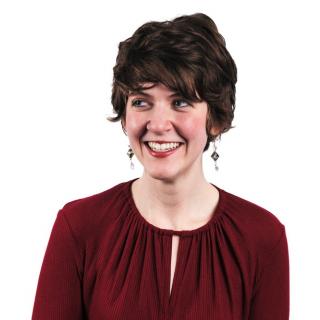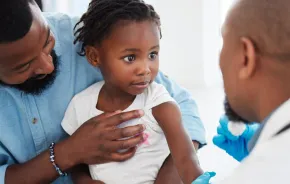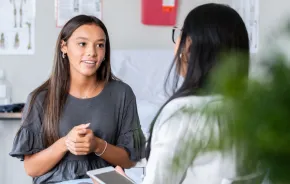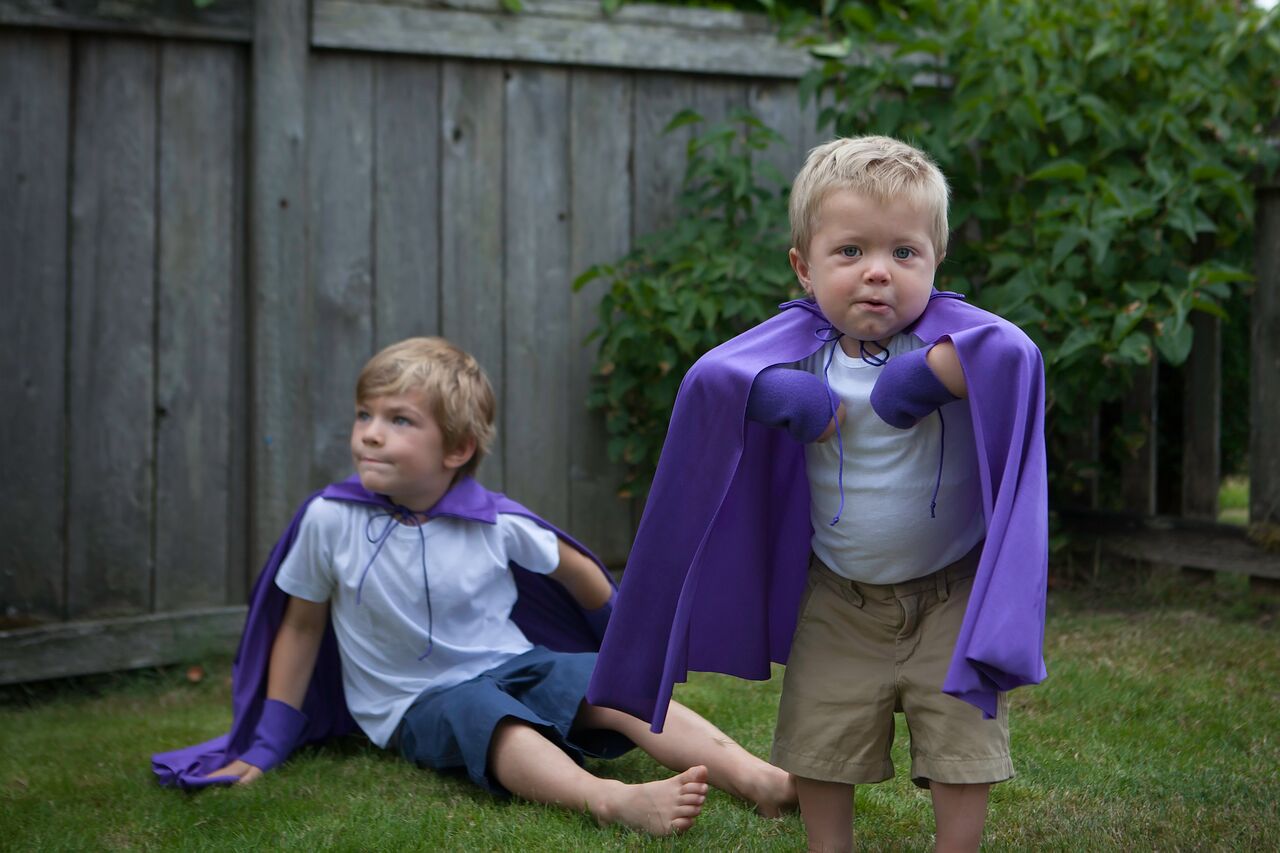
Rebecca Earl is days away from giving birth to her third child but she recalls complicated medical terminology with surprising ease. You think she’d have other things on her mind but for Earl, mother of (soon-to-be) three boys, there hasn’t been much of a break — mental or otherwise — since Oct. 10, 2014.
That was the day her and husband Josh’s second son, Whittaker, was diagnosed with acute myeloid leukemia (AML). The diagnosis came after nine months of nearly non-stop trips to the doctor, brought on by the couple’s concerns that their new baby wasn’t breathing easily. Doctors eventually realized why: Whitt had tumors growing behind his sinuses.
Treatment began immediately with a 30-day inpatient stay at Mary Bridge Children’s Hospital in Tacoma (the first of four such month-long rounds the family would go through). AML is aggressive; the five-year survival rate for children with AML is 65 percent.
The Earls don’t think in terms of cold statistics, though. They’re focused on the here, the now. During their stays at both Mary Bridge and Seattle Children’s Hospital, they’ve seen four kids — four friends — die in a year.
“Anytime I think we can start living normally, I just have to run one of those names [of the four children who died] through my mind,” Earl says. “Those families don’t have a child in their bed. They didn’t start kindergarten. They didn’t start first grade.”
For the Earls, this year marks a big milestone. Whitt turns 3 on Nov. 1; it’ll be his first birthday outside of a hospital. To celebrate, the Earls are inviting family and friends to run for Whittaker at the 11th Annual Winter Pineapple Classic, an annual fundraiser for the Leukemia & Lymphoma Society, this year hosted on Sunday, Nov 6., at Marymoor Park in Redmond.
“[With Whittaker’s diagnosis] we stepped into a different world,” Earl says. “We’re a different family, we’re different people. We love harder, we live stronger. I never wanted this but it has taught us something.” In the following Q&A, Early shares her experience and advice for helping families with a sick child.
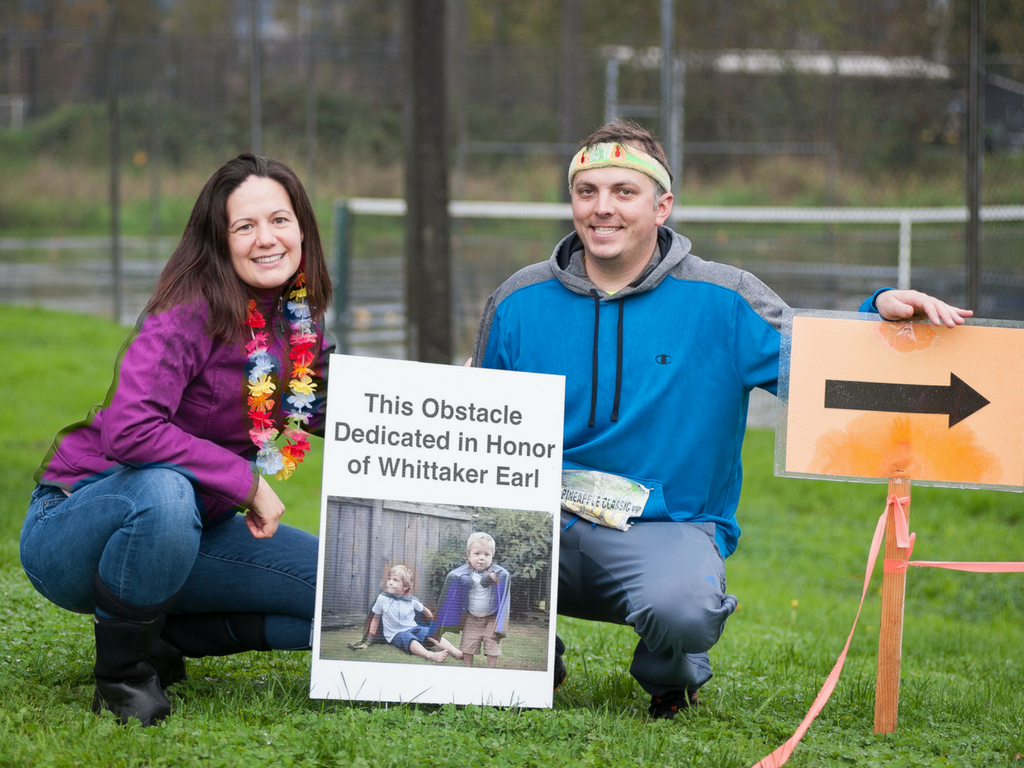
Tell me about Whittaker.
Whittaker was born Nov. 1, 2013. The first month was amazing; he was a good little baby. But by the end of the first month, we already had him in the ER. He wouldn’t lay flat and breathe OK. We thought ‘shortness of breath; something’s gotta be wrong.’ They never found anything and we were in and out of doctor’s appointments all through his first 10 months. I mean, numerous times.
Finally, when Whittaker was about 10 months old, on Oct. 10, 2014, he was diagnosed with AML … We started his first round of treatment ... It went really well. They killed all the cells; they called it ‘remission.’ I hate that word.
Why do you hate that word, ‘remission’?
I have no problem with someone who wants to say they’re in ‘remission.’ That’s fine. Our family has just found that that word is very... touchy. So we say ‘no evidence of disease at the time,’ a term more people are using. Right now, Whittaker has no evidence of the disease but he always has a greater chance of getting the disease than, say, I do because he’s already had it once.
That's great news about Whittaker! What else can you tell us?
On Tuesday [Sept. 13], we got the latest test results and Whittaker is still no evidence of the disease … his bone marrow is clean. I know a lot of people do a lot longer but for our family, it’s been a long road.
[Editor’s note: Learn more about the a protocol Whittaker is on with Dr. Marie Bleakley at Seattle Children’s.]
How has the disease affected your family?
Unfortunately, [our 6-year-old son] Everett saw a lot of the ugly side of it. He was ripped from my arms just like Whittaker was. We did our best, you know, to take him out but that’s not what he wanted. He wanted us at home with him … Play dates, time together, we lost all that. We lost so much.
How are your boys feeling about the new baby?
I’m hoping that it will bring new life and take the focus off of Whittaker’s disease. We haven’t stopped moving forward since we’ve been home. That was Josh and my’s choice. Whitt’s healthy now. We can’t say ‘maybe next year.’ We’re going in feet first!
And what is Whittaker’s long-term prognosis?
We tend to not ask those questions because things change so fast with us … We’re very like ‘OK, we’ve got this year. We’ve got this day.’ We’re really living with he’s healthy; we don’t have to doctor’s appointments … We try and be a family, to get away from all the madness that we know can happen.
What advice do you have for families who may not be going through this themselves but know a family who is? How can they be most supportive?
The advice I think I would give for friends and family is if it’s hard and uncomfortable for you, just imagine what the family is going through. I think support and gauging the situation [are important]. If it’s difficult for you to approach them, think how the family is feeling. Even if they push back, there’s probably an underlying [need] that they still need help. Maybe it’s something so simple as ‘I could really use my car vacuumed.’
It’s difficult to ask for help and it’s difficult to extend a hand if you’re not used to it. I never know what to say because I do need your help but I’ve never had to ask for your help. If you’re a friend of someone going through this, support them. Send them positive vibes however you can. Maybe not show up to the [hospital] room [unannounced] but maybe drop something off — something so simple like that can really change the mood of the day.
That’s very true and as the family, it can be so hard to know what to ask for.
Right? [What I need] is my normal back but what is ‘normal’?
My biggest thing is just don’t give up hope. We did not lose our child but we did receive some pretty horrible news and it was like ‘No, we’re still going to have a little bit of hope that we can pull through this.’ We’ve always believed in hope.




